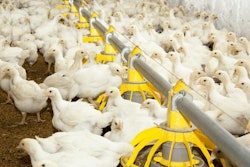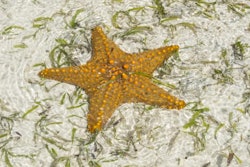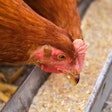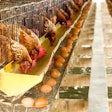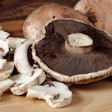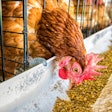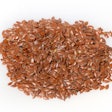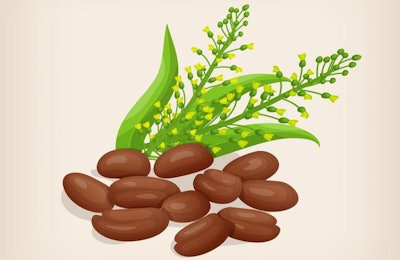
Camelina meal has been approved as a safe feed ingredient for laying hens by the Canadian Food Inspection Agency (CFIA).
According to Smart Earth Seeds, the meal has been added to Schedule IV of the Feeds Act as a permitted feedstuff at inclusion rates up to 10 percent.
Camelina (also known as false flax) is an oilseed crop whose seeds contain omega-3 fatty acids, which can be imparted to meat, milk and eggs through supplementation of the animal’s feed. These polyunsaturated fatty acids have been shown to be beneficial for human health.
A leading global camelina enterprise, Smart Earth Seeds has been working to develop the plant as a novel rotational oilseed crop in Western Canada. It has been working in partnership with Alberta Agriculture and Forestry and the University of Saskatchewan on the approval of the meal in layer diets.
“This is good news for Canadian poultry producers,” said Rex Newkirk, chair in feed processing technology at the University of Saskatchewan. “This approval ensures Canadian producers can benefit from access to a high-quality protein that also contains significant quantities of omega-3 oil.”
“Increasing camelina cake inclusions in layers’ feed resulted in a dose-related increase in polyunsaturated omega-3 fatty acids and a superior balance of omega-3:omega-6 fatty acids in table eggs,” said Matt Oryschak and Eduardo Beltranena, who carried out the feeding trials with layers at Alberta Agriculture and Forestry.
Use of camelina meal was authorized by the CFIA for use in broiler feeds in Canada in 2015. A similar application has now also been made for inclusion of camelina in dairy rations.
“This is another major step for camelina production in Canada,” said Jack Grushcow, founder and CEO of Smart Earth Seeds, commenting on the approval for laying hen feeds. “This latest approval makes the crop production economics for camelina even more attractive. The more local markets we can develop for camelina meal, the greater the opportunity to process locally and provide regional economic development.”
For growers, camelina has the advantage of being more disease- and drought-tolerant than other oilseed crops, and it can be grown on marginal land while providing valuable crop rotation benefits. As well as its content of omega-3 fatty acids, camelina meal is rich in protein and fiber.
CTV Saskatoon reports that camelina oil is a valuable feed ingredient for aquaculture feeds. After the oil is extracted from the seeds in the U.S., it is shipped to meet global demand from the farmed fish sector. When there is sufficient domestic demand for the meal as well as the oil, Smart Earth Seeds expects a kick-start to the development of a local industry to crush the camelina seeds in Western Canada.



